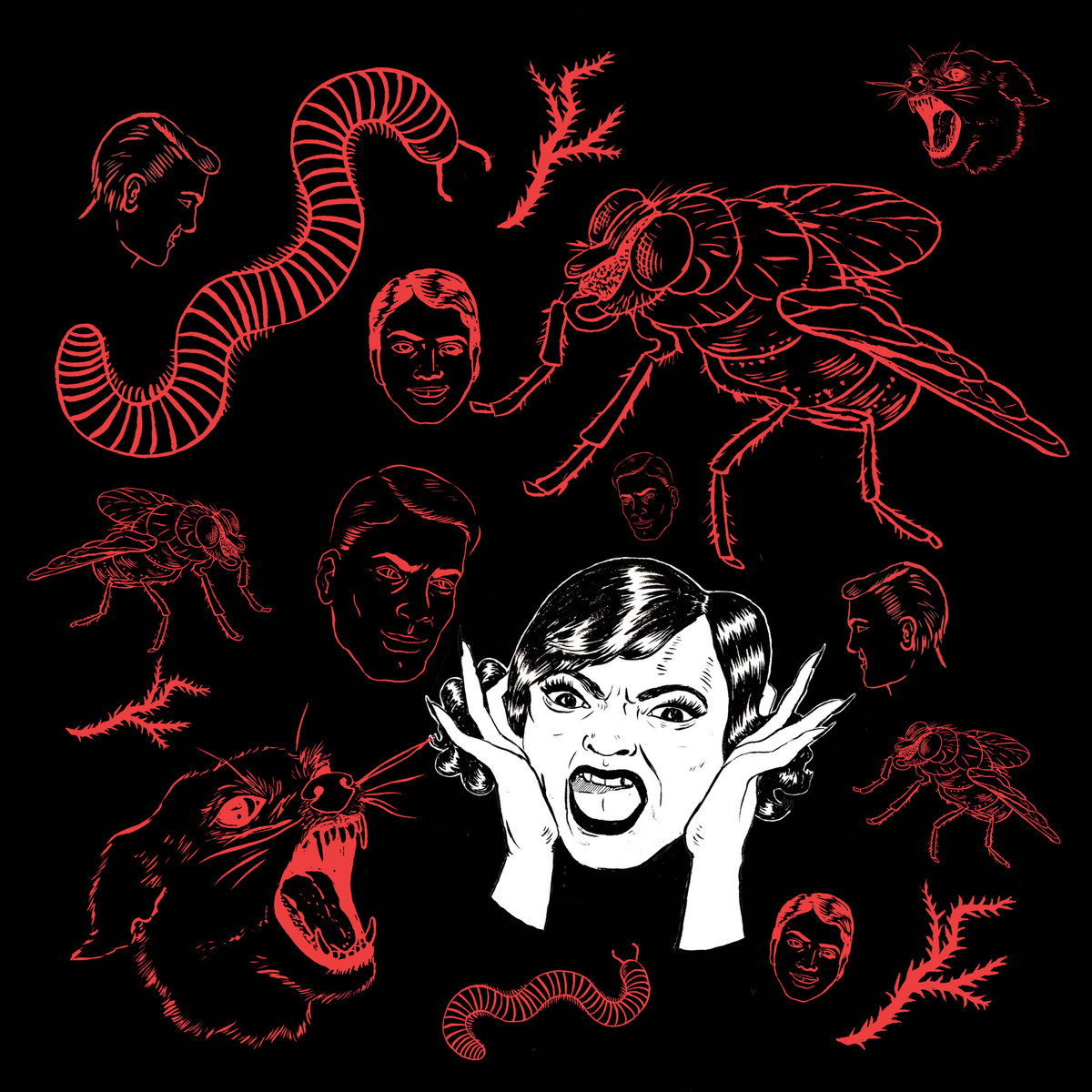Bush Tetras
They Live in My Head
WHARF CAT
The career of cult post-punk group Bush Tetras is neither an arc nor a straight line, progressing instead at dramatic and brief intervals, starting and stopping, the bigger picture only coming into clear view with a few steps backward, aided by the release of their 2021 box set Rhythm and Paranoia. Emerging from the same New York no wave scene that included groups like ESG, Sonic Youth, and Contortions (of whom Bush Tetras guitarist Pat Place was briefly a member), Bush Tetras found their energy in off-kilter groove and mutant disco jitters, leaving their zig-zagging mark in the early ’80s only to split for a decade and return in the ’90s with an attempt to reconcile their avant-garde background within a mainstream alt-rock landscape (“How are we going to meld Soundgarden with Albert Ayler?” their late drummer Dee Pop queried in 2020).
They Live in My Head, the group’s first album in 11 years and only their third since their 1997 debut, neither answers that question nor reconnects with their skronkiest early works, instead easing into a more accessible form of noise rock that nonetheless feels like a natural progression from where we last heard them. That being said, a lot has happened with the group since then; founding drummer Dee Pop died in 2021, just as the band were promoting their career-spanning reissue. And in the aftermath of his loss, Sonic Youth drummer Steve Shelley joined the band—perhaps the only fitting fill-in for Pop, a veteran of the same scene with a parallel appreciation for rhythm and chaos alike.
As They Live in My Head represents a new phase for Bush Tetras, it hangs heavy with a sense of loss and reflections of yesterday. Vocalist Cynthia Sley is literally haunted by the passage of time on “Ghosts of People,” lamenting, “Crave more time / You get nothing done.” And on “2020 Vision,” Sley attempts to make sense of living through an apocalyptic year: “Looking back on 2020 / All I know, it’s been a journey.” But occasionally Sley simply revels in playful sing-along silliness, like on “Tout Est Meilleur” wherein she returns to a French-sung refrain of “Tout est meilleur avec du beurre”—“Everything is better with butter.” Which, for the record, is true.
Fittingly, there’s a greater degree of room for contemplation, with Place’s prickly post-punk guitar squalls still present but given a wider canvas to screech over. It’s in moments like closing track “The End” where Bush Tetras sound their strongest, every piece of their elegiac, psychedelic whole achieving a mesmerizing harmony. Even as they contemplate where they’ve been and what’s been lost along the way, Bush Tetras remain, nonetheless, thrillingly vital.







